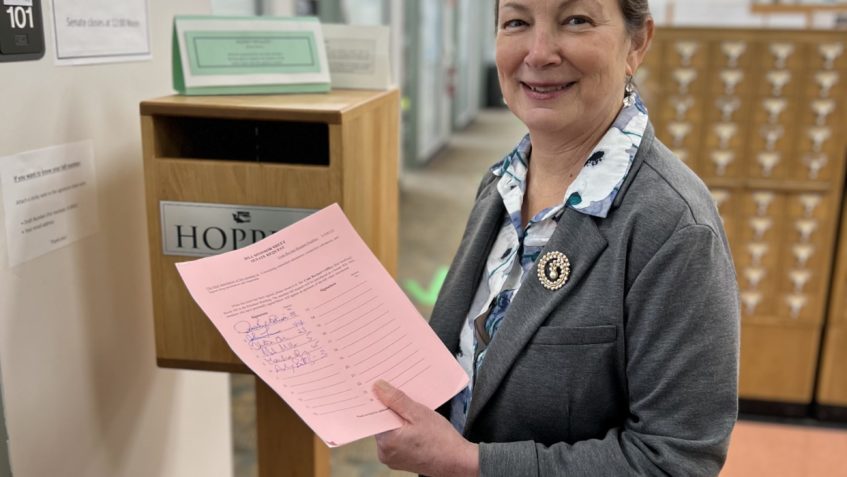OLYMPIA — Legislation to amend Washington’s drug possession laws and increase participation in pretrial treatment programs was introduced in the Senate Friday.
The bill, sponsored by Sen. June Robinson (D-Everett), permanently addresses the state Supreme Court’s 2021 State v. Blake ruling, which struck down the statute that made possession of controlled substances a class C felony and removed any criminal penalties for possession. In response, the Legislature established a simple misdemeanor penalty for knowing possession that same year, but it is set to expire July 1, 2023.
“Substance use disorder is not a partisan issue, it’s a human issue,” Robinson said. “This legislation is the result of many conversations with community members, law enforcement, local government leaders, behavioral health providers and more. We know our state must continue to invest in systems based in real solutions like treatment, so we can foster strong, healthy communities and put care over criminalization — that is exactly what this bill does.”
If passed, Senate Bill 5536 would:
- Make permanent the 2021 change that made knowing possession of a controlled substance or counterfeit controlled substance misdemeanors, but classify the offenses as gross misdemeanors rather than simple;
- Legalize providing drug paraphernalia, while maintaining a class 1 civil infraction for selling drug paraphernalia or allowing it to be sold;
- Repeal the Drug Possession – Referral to Assessment and Services statute and recodify the option for law enforcement to refer a person to assessment and services into the relevant simple possession statutes;
- Preempt cities, towns, counties and other municipalities from enacting laws and ordinances criminalizing possession of drug paraphernalia inconsistent with state code;
- Require the court to notify people charged with simple possession of the pretrial diversion program and permit entry into treatment upon a motion of the individual and acceptance of the court;
- Allow the prosecuting attorney, court or probation department to terminate a person’s participation in the diversion program if that person is not meeting certain requirements;
- Require charges be dismissed if a person successfully completes the program;
- Allow individuals convicted of simple possession who successfully complete a substance use disorder treatment program to petition the court to vacate the conviction;
- Provide funding for treatment programs and services for people for whom cost is a barrier to care;
- Remove barriers to expanding drug treatment programs, including mobile or fixed-site programs.





